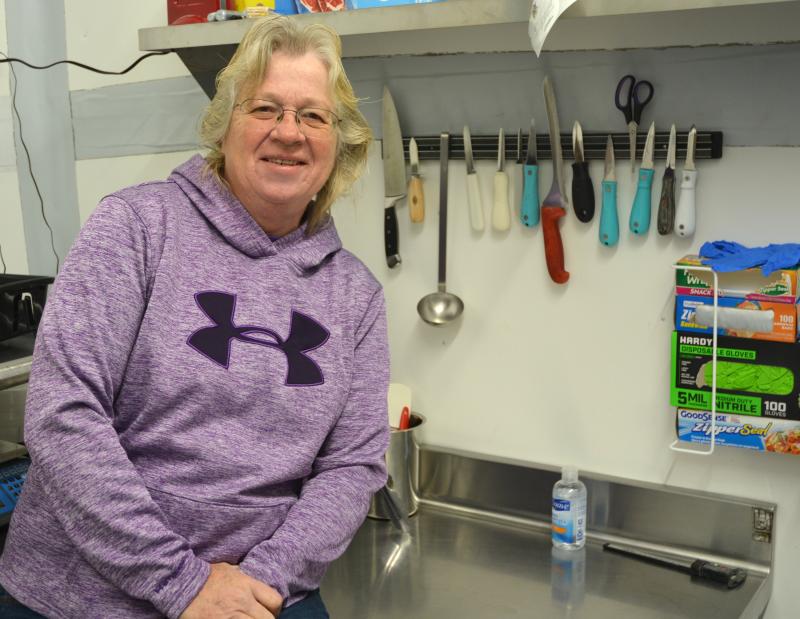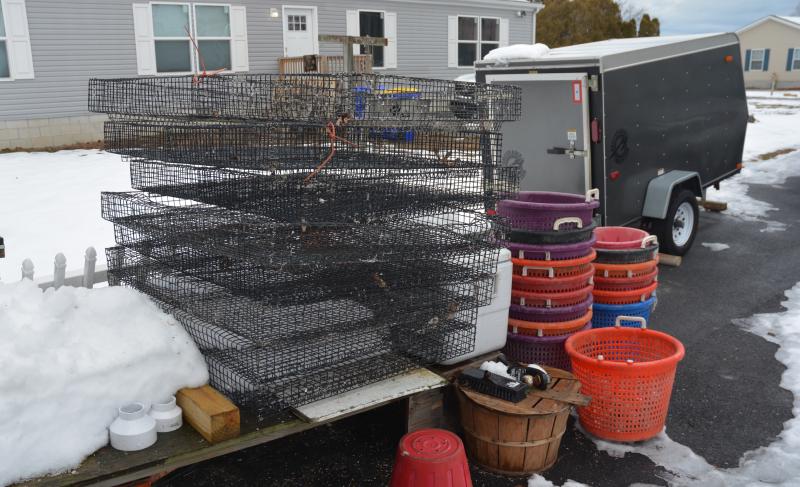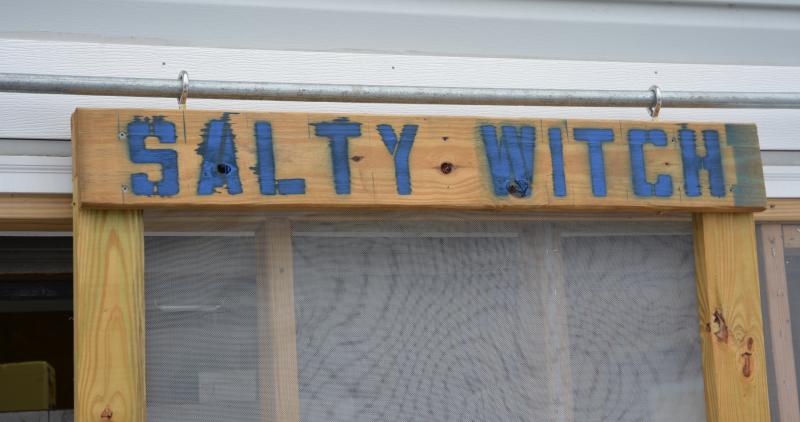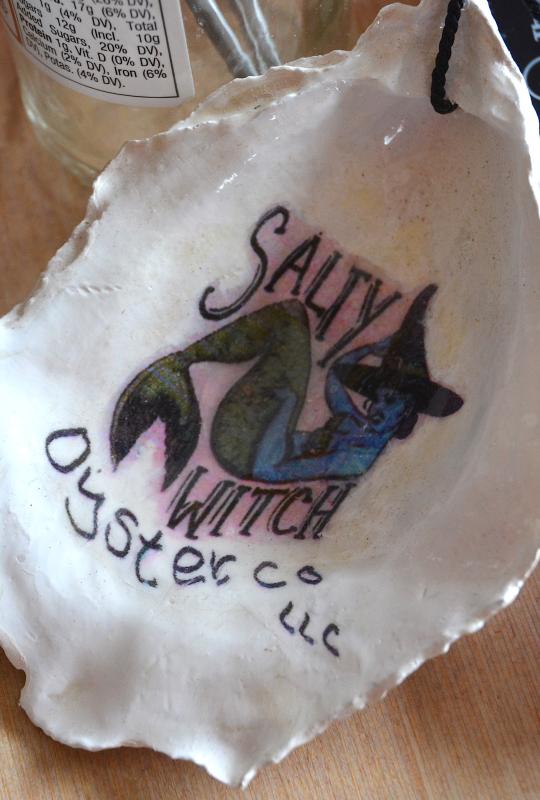Carol Friend has always had a side hustle in the water
With the recent snow and the subsequent freezing temperatures, it’s been a rough few weeks for local watermen. For oyster farmer Carol Friend, it's been more than a week since she’s been out on a boat in Rehoboth Bay to check on her oysters.
“I haven’t been able to do anything,” she said Jan. 18. “I’m hoping to get out there tomorrow, just to see what damage has been done.”
Friend, 62, grew up on Cedar Street in Lewes, the youngest of 10 children. Now, she lives off Sweetbriar Road, close to the Sussex Consortium.
“I was kind of a beach rat,” she said.
Friend said she can still remember being 6, 7, 8 years old playing on the beach and being able to catch blue fish by hand because the schools of fish were so plentiful and they’d be that close to shore. A person can’t walk on the beach in Lewes and see that kind of life out there anymore, she said.
Her dad was a waterman who clammed and oystered.
“He couldn’t feed the family off that, so he always had to do something else,” said Friend. “There was always a side hustle, but being out on the water was what we did.”
When Friend was 2 years old, her father developed multiple sclerosis that forced him to stop working. Eventually, she said, both of his legs had to be amputated.
It was tough, said Friend. Her brothers had to quit school and go to work to support the family, she said.
Having been so young when her father got sick, Friend said she doesn’t remember when he was a working waterman, but she said her brothers have tales about her father telling them they weren’t allowed back on the boat until they had 10,000 clams.
“It sounds like a lot, but back then it wasn’t that hard,” said Friend, laughing. “It would be difficult to do that today, though.”
Friend retired from the U.S. Postal Service in October 2019 after 35 years. The day after, she called her brother Steve, who is also a retired postal employee and oyster farmer, to see if he had any work for her on his Rehoboth Bay oyster farm. He did, and she’s been farming oysters ever since, she said.
“He asked if I wanted to take two or three weeks off to relax, but I didn’t. We can’t sit still. My family is a working family. I can’t sit in the house and watch TV all day or spend a lot of time throwing a ball with a dog. I’ve got to be doing something,” said Friend. “I need to go back to work to get a vacation from my retirement.”
Ever since then, she’s been working as an oyster farmer, growing her product on the leases of other farmers she knows. She got her own acreage and required approvals from the state in October. She had her cages in the water soon after.
“It tickled me to death,” she said, of getting out there on her own.
Friend has 3 acres to farm on the Route 1 side of Rehoboth Bay. She said it’s about three-quarters of the way down the bay toward the Indian River, and the more time she spends out there, the more she’s learning the ins and outs of her lease. Some areas are just a little bit deeper than others, which helps her decide the type of cages she’s going to use.
Friend said she thinks she’s the only woman who’s actively working on the water under her own lease. She recognizes it’s a profession dominated by males, but that doesn’t bother her.
“They’re afraid of me,” she said, laughing. “I’ve got a reputation, and I’m going to speak my mind. I used to be shy as a kid, but not anymore.”
Oyster farming isn’t easy work. It’s long, hot days in the summer, keeping oysters moving and cages clean. During the winter, it’s cold days and trying to keep the oysters alive. However, said Friend, she likes doing it.
“I was alright at math in school, but I’m stupid when it comes to books. I had enough trouble with English, let alone trying to learn a second language like Spanish,” said Friend, on why she’s always been willing to do physical labor. “Plus, it’s a lot more fun working for yourself than it is working for the man.”
Friend also isn’t getting rich off her retirement job. She builds everything she can on her own and is always looking to save a penny here and there.
“Am I in the black? Hell no. I’m in the red, and I’ve had to use some of my savings. I don’t have loans, but I’m not in the black,” she said.
Like a true postal worker, Friend said the weather doesn’t bother her. The only time she can’t work in the water is when it’s too windy or the water is iced over. She uses different methods when farming her acreage. There are floating cages and ones that have been anchored.
“Floating produces a beautiful oyster, but if that’s all you have; Mother Nature is going to tear it up,” said Friend.
Looking to the sustainability of the industry, Friend would like to see a commercial dock built for her and the bay's other working watermen because it’s expensive to lease dock space at local marinas and then there’s no place to park at local boat ramps. She’d also like to see some regulations about fishing in the leases, because people are allowed to fish where the cages are.
“They can’t clam in our leases, but they can fish. We already have enough hazards,” said Friend. “We need a commercial dock out there. It’s ridiculous.”
Despite the hard work, the financial requirements and dealing with regulations, Friend said she plans on oystering and being out on the water as long as she can.
“Water is our blood. That’s our happy place,” said Friend. “When I die, cremate me and throw my ashes in the water or put the container on an inner tube and float it out to sea. I’ll be ready to go.”
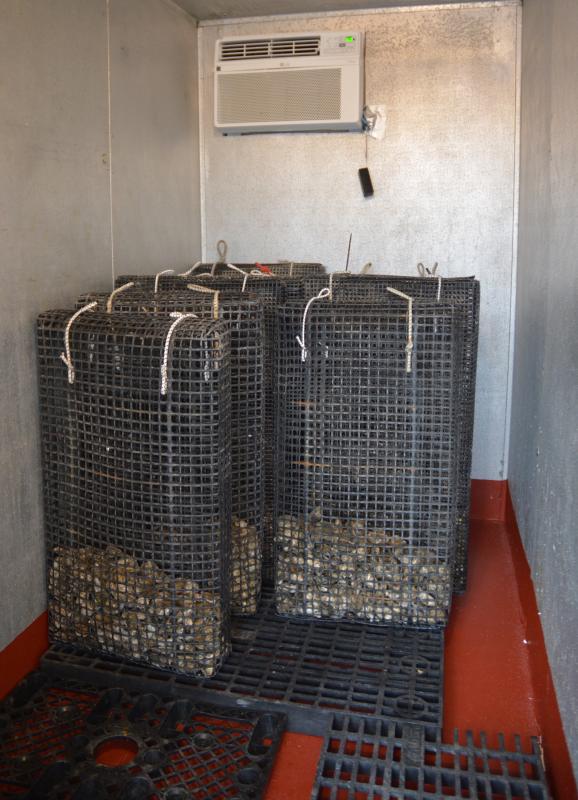
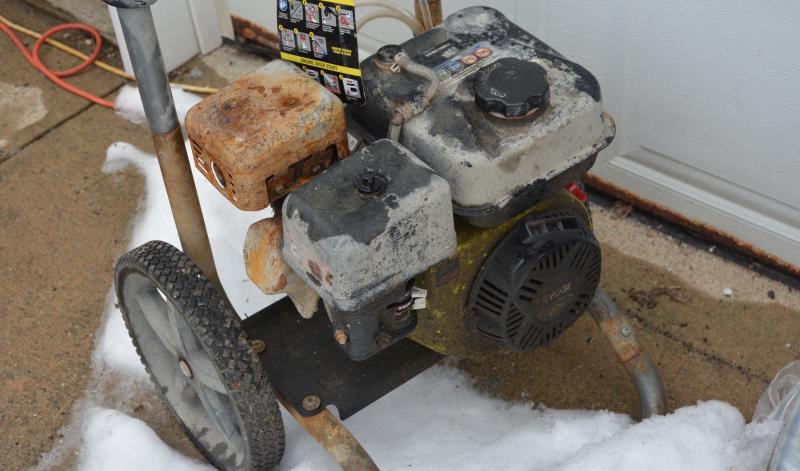
Chris Flood has been working for the Cape Gazette since early 2014. He currently covers Rehoboth Beach and Henlopen Acres, but has also covered Dewey Beach and the state government. He covers environmental stories, business stories and random stories on subjects he finds interesting, and he also writes a column called Choppin’ Wood that runs every other week. Additionally, Flood moonlights as the company’s circulation manager, which primarily means fixing boxes that are jammed with coins during daylight hours, but sometimes means delivering papers in the middle of the night. He’s a graduate of the University of Maine and the Landing School of Boat Building & Design.











